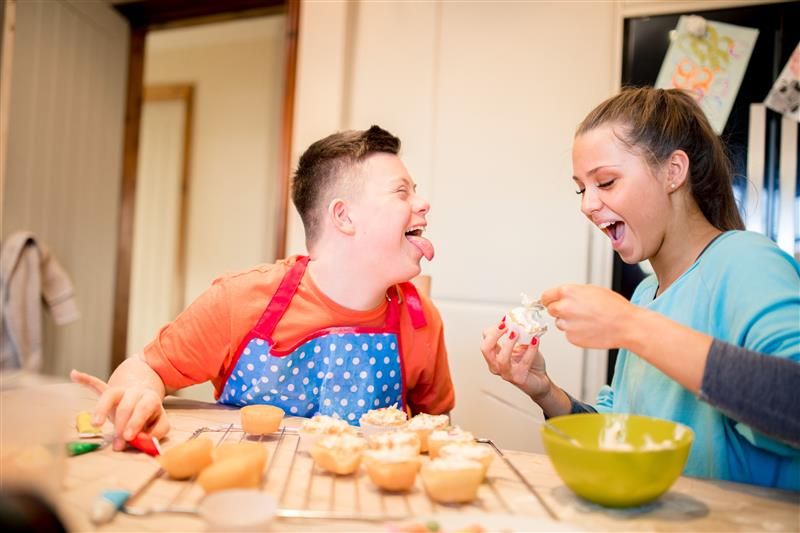Ollie on making a ‘real, lasting difference’ through care work

We asked Ollie Loveridge, Service Manager at a United Response supported living service in Bristol, to share his insights on what good care looks like and what makes social care such invaluable and rewarding work.
Outstanding Care
Incredible care can take so many different forms. The services being delivered adapt with each unique person to help them with whatever they want to feel safe, happy and fulfilled in their daily lives. Sharing the impact of the care he’s overseen in his role, Ollie said:
Outstanding care often comes down to consistent, meaningful, day to day support rather than big or costly initiatives. We learnt that a person we support hasn’t been able to sleep in their own bed for a long time. So we set realistic goals for them, something that felt deep, personal and meaningful, working at the person’s own pace, which helped the person feel safe and comfortable enough to sleep in their bed again.
Outstanding care is about giving our colleagues the right tools and support to make sure that we do something positive, not just for that moment, but in a way that genuinely improves somebody’s quality of life in the long run.
Ollie also spoke about the importance of the services being led by the shared values of those involved, creating a framework for support guided by common principles that prioritise the best possible care.
Having a collective, shared sense of values is super important, sharing the responsibility for listening, understanding and acting with empathy, not just on an individual level, but on a team level. Being compassionate, having integrity, consistently showing up for somebody, and being accountable for the things that you’re doing — I don’t just see them as nice things to have. I think that they’re absolutely essential in the provision of safe, high quality care.
Person-centred approach
United Response is committed to a person-centred approach to the services we provide and how we provide them. By honouring the individuality and autonomy of everyone involved, we prioritise personal choice and do all we can to empower every voice. Ollie shared with us how he applies this collective approach from a managerial perspective, making sure our wonderful support workers are valued and listened to.
In terms of how we work together, the two main things for me are communication and making sure that we are aligned in our direction. One of the biggest challenges we have right now across the sector is recruitment and retention. But when carers feel respected and supported, people will want to join and stay in the sector.
Person-centred care and support is a celebration of what makes us individually human, as well as all that connects us with one another, united in tackling shared challenges to build a future for everyone that is based on empathy and equity. As Ollie said:
Fundamentally, building relationships and connections with anybody is at the heart of good care, whether that’s through the lens of the work we’re doing or the relationships that we have with our friends or family members. It’s not just about delivering tasks, it’s about a sense of belonging, a sense of being a part of somebody else’s growth, sowing seeds every day.
Challenging assumptions
It’s so important that we challenge the assumptions and limiting narratives surrounding the social care sector. The work makes a real difference to people’s lives every single day, and is an enriching chance for compassionate connection and a widened appreciation of diverse perspectives and life experiences. It’s about time we recognise the value of social care as the vital and fulfilling career that it is. Discussing the stereotypes surrounding social care and how we can work towards changing them, Ollie said:
Care work is often seen as being a low skilled job, and that’s representative in the way that the government thinks about it, in terms of the resources and budgets that are prepared for the sector. I think people often overlook just how much knowledge, judgement, emotional intelligence and resilience it takes to do the job. We’re building trust. We’re responding to seriously complex needs. We have to stay calm under pressure and make decisions which are effective at that moment. If we can shift the mindset to see care roles as skilled, essential and impactful, I think we can go a long way in raising the respect for the work that people do. By advocating for support workers to receive better pay, maybe we can attract different skill sets into the sector as well.
We also need to celebrate the impact of the work we do, from small, everyday successes to the long term growth that we see in the people we support and in our colleagues. I get to work within a service where five support workers have been there for 20 years. That’s remarkable. People just talk about it like it’s blasé, but no, it’s outstanding that five people have committed 20 years of their life. I think people see care as a place where they want to make a real, lasting difference.
By sharing the stories and perspectives of care workers and the individuals and families they support, we can begin the shift in society that’s so clearly needed. Let’s help more people to recognise the incredible ongoing commitment of individuals who honour interconnection and nourish community through care work.
- This blog was written by Isla, who joined us for work experience in July.